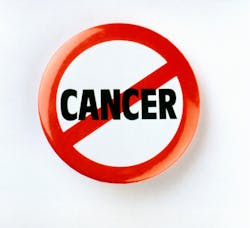Individual patient data meta-analysis led by UCLA Jonsson Comprehensive Cancer Center researchers found an ‘unexpected result’: Black men may have improved response to initial treatment, according to a news release.
UCLA Jonsson Comprehensive Cancer Center researchers leading a meta-analysis of seven randomized trials found an “unexpected result”: Although Black men appeared to have more aggressive disease when they enrolled in clinical trials of radiation therapy for prostate cancer, their treatment outcomes and disease-specific outcomes were better than those of their white counterparts.
“These results provide high-level evidence challenging the common belief that Black men who are diagnosed with prostate cancer will necessarily have a worse prognosis than white men,” said Amar Kishan, MD, Associate Professor and Vice Chair of Clinical and Translational Research in the Department of Radiation Oncology at UCLA.
“This is especially important because an unfounded belief can inadvertently contribute to ‘cancer injustice,’ leading to the use of more aggressive treatments than might be necessary—potentially reducing quality of life — and diverting attention away from other important factors that can influence outcome, including access to more comprehensive healthcare,” said Kishan, Chief of the Genitourinary Oncology Service for the Department of Radiation Oncology at the David Geffen School of Medicine at UCLA and the UCLA Jonsson Comprehensive Cancer Center.
In what is believed to be the largest meta-analysis of its kind on the subject, the researchers reviewed individual patient data of 8,814 patients from seven randomized clinical trials on radiation therapy for prostate cancer — studies that enrolled a substantial number of Black men and were conducted by the Radiation Therapy Oncology Group (RTOG)/NRG Oncology. All patients in the trials received either standard or high-dose radiation therapy, and some patients also underwent short- or long-term androgen deprivation therapy.
Of the total, 1,630 men self-identified as Black; 7,184 as white. Overall, Black men were younger, with a median age of 68 versus 71, and they were significantly more likely to have high-risk disease. To investigate associations between race and treatment effectiveness, the researchers extracted and analyzed statistics on recurrence (biochemical recurrence, or BCR), metastasis (distant metastasis, or DM) and prostate cancer-specific mortality, or PCSM, and other, secondary endpoints.
According to the results, Black men were significantly younger and more likely to have high-risk disease at the time of treatment, but they had lower recurrence, metastasis and PCSM rates than White men, even without statistical adjustment. When adjustments were made for age and other factors, “race remained significantly associated with improved BCR, DM and PCSM outcomes,” the authors reported in the article. “The fact that Black men had improved early and late disease outcomes when compared with white men is a novel and unexpected result that highlights that Black men may have an improved response to their initial treatment.”
“These results do not suggest that there are no biological differences that might drive differences in prostate cancer incidence between racial groups,” the authors said. “In fact, it is possible that the association with differential treatment response that is noted might be, at least in part, explained by differences in underlying biology.”

